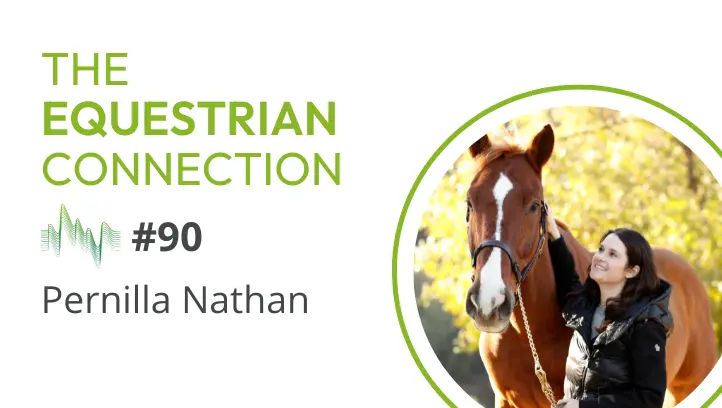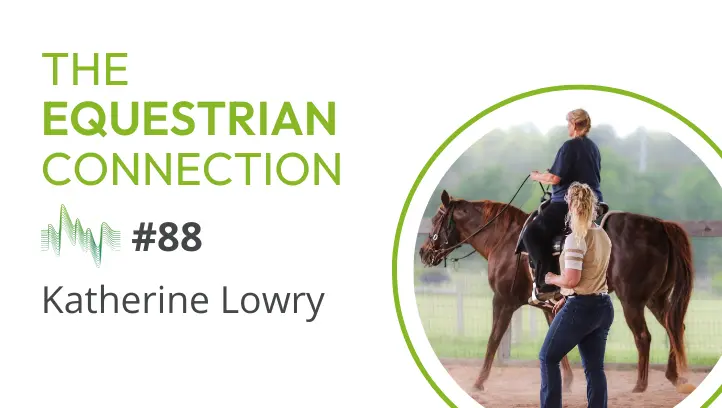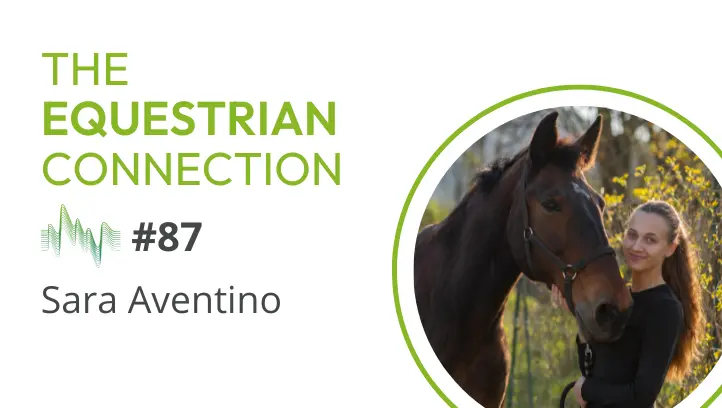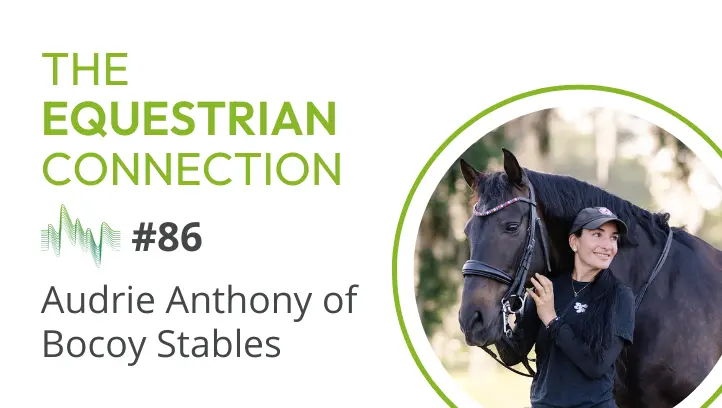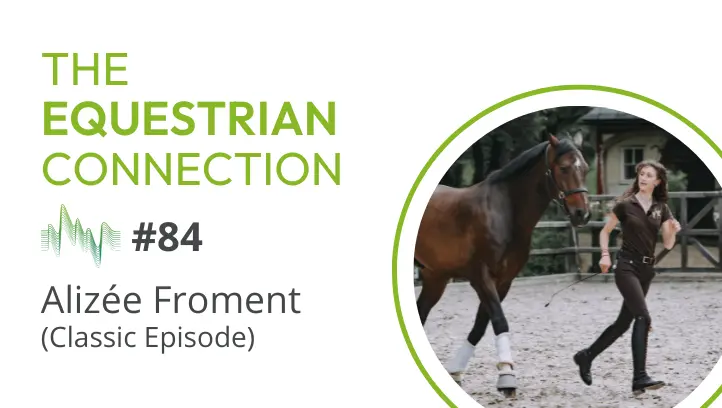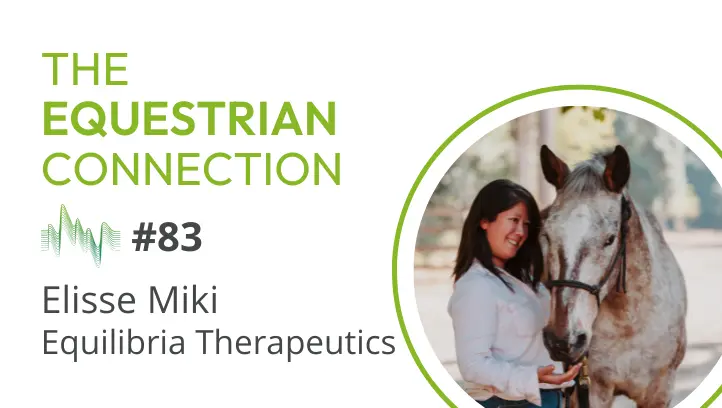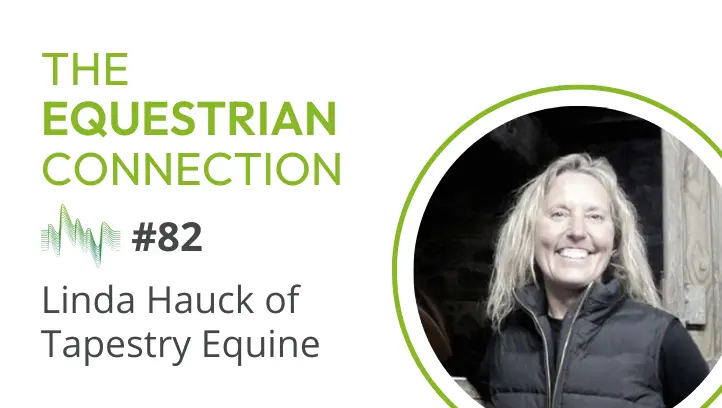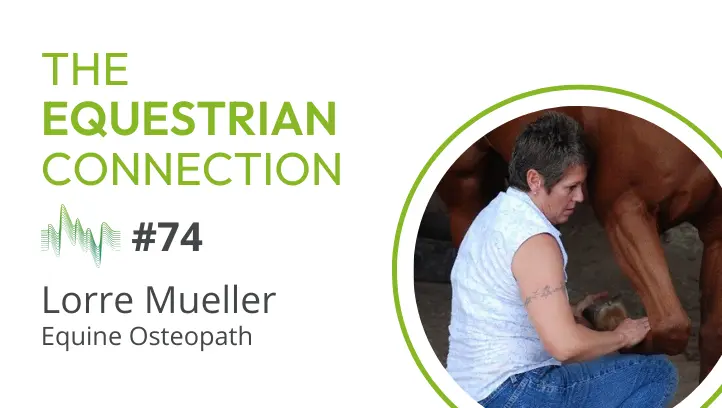#50 Improving Communication for Horse Trainers with Paul Court
Paul Court is a renowned horse trainer and gained fame for his notable achievements in the racing world. He made history as one of the youngest trainers to win the esteemed New Zealand Cup, guiding Terror To Love to victory for three consecutive years—an accomplishment matched by only two other horses and not seen since 1960.
With 32 wins and earnings of $2.5 million, Paul's exceptional training abilities shone through. His expertise transcends borders, earning him respect across Australia for his versatile methods. Paul's success extends to Australia and Canada, demonstrating his proficiency in managing bustling stables and keeping owners satisfied.
Starting his journey at 29, Paul's experience handling 40 to 50 horses simultaneously has provided invaluable insights into effective communication and dedication required for success.
His dedication to improving the industry led to the creation of Stable Hub, aimed at enhancing stable management and supporting fellow trainers.
Learn more about Stable Hub: https://stablehub.ca/
Podcast Transcript
This transcript was created by an AI and has not been proofread.
[SPEAKER 2]
[00:00:02-00:00:07]
On this episode, we're talking with Paul Court, an accomplished horse trainer and industry innovator.
[SPEAKER 1]
[00:00:08-00:00:17]
The difference between a good horse and a very good horse is the trainer. An average trainer can make a good horse win $100,000, where a good trainer can make it win a million.
[SPEAKER 2]
[00:00:19-00:01:44]
Welcome to the Equestrian Connection podcast from Wehorse. My name is Danielle Crowell, and I'm your host. Paul Court is a renowned horse trainer and gained fame for his notable achievements in the racing world. He made history as one of the youngest trainers to win the esteemed New Zealand Cup, guiding Terror to Love to Victory for three consecutive years, an accomplishment matched by only two other horses and not seen since 1960. With 32 wins and earnings of $2.5 million, Paul's exceptional training abilities shone through. His expertise transcends borders, earning him respect across Australia for his versatile methods. Paul's success extends to Australasia and Canada, demonstrating his proficiency in managing bustling stables and keeping owners satisfied. His dedication to improving the industry led to the creation of StableHub, aimed at enhancing stable management and supporting fellow trainers. When starting his journey at age 29, Paul's experience handling 40 to 50 horses simultaneously has provided invaluable insights into effective communication and the dedication required for success. Ready to hear more about his incredible journey and the app StableHub? Let's get started. Paul, welcome to the WeHorse podcast. I was just saying before we started recording how you're our first racehorse trainer. So I'm really excited to talk about that side of the industry. So welcome.
[SPEAKER 1]
[00:01:45-00:01:47]
Thank you very much. And thanks for having me. I'm pretty excited about this.
[SPEAKER 2]
[00:01:48-00:02:01]
Awesome. I always want to go back to the very beginning of everybody. I love the origin story. I love hearing how you got started. So what brought you to horses and what were your first few years like as a horse person?
[SPEAKER 1]
[00:02:02-00:02:22]
Um, the horse racing has been in my blood for, oh geez, for a long time. My, uh, my grandfather, my dad, and, and I think my great grandfather as well. So, um, it was something I couldn't escape. Um, and fortunately enough, I didn't cause it's, you know, it's a passion and, um, yeah, something, uh, I've done all my life.
[SPEAKER 2]
[00:02:22-00:02:42]
Hmm. With with a family legacy, you mentioned like I mean, that's like four with you, five generations, we'll say three to four generations. Did you ever find that there was pressure that you needed to do it or was it something that, oh, my gosh, I'm so glad that I have this family that I can lean on for support?
[SPEAKER 1]
[00:02:44-00:03:31]
It was really strange for me. So I didn't really have an idea of what I was going to do until later. And I actually – it sounds stupid, but when I was younger, I actually wanted to pump gas. Thankfully, but I don't know. I think it just fell on my lap, and I left school as soon as I could, really, because by that time, I knew that's what I wanted to do. So there's no real pressure, but it was good having that background because, you know, it's very hard to break into racing when you don't have a background. Mm-hmm. I was very fortunate with my dad and granddad to, you know, teach me a lot of things, but also get me started. So it was a big, big help.
[SPEAKER 2]
[00:03:32-00:03:51]
Yeah. And now, of course, I mentioned the intro. You've had a lot of milestones and you've had a lot of really big wins in your career. What was the journey to get you there, to go from, you know, growing up with horses, growing up with a family and horses, to get you to some of the milestones and wins that you've accomplished? Yeah.
[SPEAKER 1]
[00:03:52-00:04:36]
Look, they don't come easy by any means. And I think I've been very fortunate enough. I left school and started training and helping for my dad. And then I went overseas and did some experience over there for other leading trainers. And then I came back and went into training partnership with my dad. And I was very fortunate enough that we bred, one of our clients and us bred a very good horse, which we had obviously right from a foal right through. And he took us on a huge journey. I think in total he won just, it might have been two and a half million. He took us all over Australasia.
[SPEAKER 2]
[00:04:37-00:05:03]
and we won some pretty big races and uh but they don't come easy and um you know I think it's just luck sometimes is you know like you've got to manage them as well but at the same time you still got to have a bit of luck and and hoping that you aim for a big heart you know yeah can you tell us about like something that comes to mind in your career like one of your like peak moments um like a memory that that pops up Yeah, for sure.
[SPEAKER 1]
[00:05:03-00:05:49]
There's been plenty of them, but one in particular is the New Zealand Cup. We won the New Zealand Cup three years in a row. The first year he won it with our horse, Terror to Love, was when he was a four-year-old. And that in itself is a big, big ask. And like I say, he won it three years in a row. And it hadn't been done since I think it was about 1930s or something like that. So that was really massive. And the New Zealand Cup is like the biggest race in Australasia. And it's what all New Zealand trainers especially strive to win. So to be able to do that once and then, you know, a couple more years after that was unbelievable. So it's something that's going to stick with me.
[SPEAKER 2]
[00:05:49-00:06:04]
Yeah, absolutely. And so as you've gone through these milestones, what are some of the lessons that you've learned? I'm sure there's been losses along with the wins. So is there anything that has been a lesson that you've been able to continue to take with you in your career?
[SPEAKER 1]
[00:06:05-00:06:51]
Um, you know, there's so many things that you pick up along the way and get taught along the way. And, um, but you know, I was always taught that, um, The difference between a good horse and a very good horse is a trainer. An average trainer can make a good horse win 100,000, where a good trainer can make it win a million. So in saying that, there's been so many things you can pick up along the way. It's hard to mention anything in particular, but, you know, when you're traveling too, like when we had... Him traveling and we're going to Australia. There's so many things about traveling and diet and vitamins and that to try and help them recover for a race or get them. So it's just so many things like that that, you know, I've learned along the way.
[SPEAKER 2]
[00:06:52-00:07:24]
Yeah, yeah. You mentioned about a good trainer, you know, continuing to bring the horse along. So like I said, we haven't had a racehorse trainer on the podcast before. So can you give us a little bit of a background on that side of the industry? What is it like to train racehorses? You know, like we normally are talking to people with their dressage horses and you know, hunter jumpers and those sorts of things. But is there any difference in training resources? What is your routine like? Can you walk us through that side of the industry?
[SPEAKER 1]
[00:07:25-00:09:14]
Yeah, for sure. So It's, I sort of liken it to how you would go, a human would go to the gym, start out at the gym. You always start out quietly and slowly build up. It's pretty much the same thing for a horse. If you go to the gym and you, you know, lift the heaviest weights straight off the bat, you're going to get sore and you're going to get muscle sore and all that. You're going to do damage. And it's the same thing for a horse. So I think from a start process to the, to, From when you very start training a horse to when you get to the track, to the racetrack, it's generally, like, if you say three months, it's, you know, it's a bit of time. So we generally sort of start jogging, start off at five months and then slowly increase up to half an hour over a period of maybe a month, six weeks. And then we would start some strong work. So what we call pace work, just to get the miles under their belly and then go from there. And they just slowly build them up. And before your race, you generally go to what we call qualifiers or trials, depending on what country you're in. And, you know, they're just like practice races. and you just go there and try and build up your stamina. And generally after a couple of qualifiers or trials, you're sort of ready to race. There's an old saying, you can't beat race fitness, but that only comes with racing. So it's another step from trials and qualifiers to races just because they go so much faster. Yeah. But yeah, you can't beat race fitness, but you can't get that without having races.
[SPEAKER 2]
[00:09:15-00:09:26]
Yeah, yeah, absolutely. So it's like the trials and that are like our version of like a training show. Like you're going, you're getting them exposed, all those sorts of things, but you're not really competing.
[SPEAKER 1]
[00:09:26-00:09:26]
Yeah.
[SPEAKER 2]
[00:09:27-00:10:12]
Yeah. Cool. OK, I'm going to read something to you and then I'd love to delve into that a little bit. So in the intro, our listeners will have heard me say that your experience. So, quote, your experience handling 40 to 50 horses simultaneously has provided invaluable insights into effective communication and the dedication required for success. So I have two horses and I find my time management, like managing the two of them. I'm like, oh, my gosh, like I'm. And so when I when I read 40 to 50 horses, I feel so overwhelmed. Can you talk to us about your time management, your routine, all of the things that make it so that you're able to find success with these horses and then also with with the owners and with your job as a trainer?
[SPEAKER 1]
[00:10:13-00:12:22]
Yeah, I think that it's the old saying too, you're only as good as your staff. Staff are a big, big thing. And getting good staff is another thing. So, you know, like I would always write up a diary every morning for what's got to be done with the horses and possibly any other jobs that need to be done that day. And, you know, would slowly work through the diary. And then, you know, the staff would always know. when we're finished working the horses, what needs to be done. And I'd always bring the horses in early and give them a brush up and pick their feet out and stuff. I'd just go over them, make sure everything's hunky-dory with them. And that would be the day-to-day process. And obviously the feeds and all that, they're all fed differently. So just making sure your staff are on top of that as well because trainers can't do everything. And you do have to delegate, but that's where it comes to having good staff. If you've got good staff, they're worth their weight in gold. So do that. And then the hardest thing when you're doing numbers like that is – is doing all these things but then also communicating with the owners. For the most part, you know, they're all owned differently. Like there could be groups of owners that own one and there could be others that one guy owns one. So trying to communicate with them has always been an issue and that's a world-renowned issue for racehorse trainers because trainers get so busy throughout the day that, keeping the owners informed is a whole other task and I know first hand that when I was training those numbers I would finish training and then I'd be coming inside and I'd be on the phone all night and you know I've got a young family and so I definitely got into a lot of trouble by doing that with the wife but yes so being able to manage that is a whole other task Yeah, yeah, absolutely.
[SPEAKER 2]
[00:12:23-00:13:15]
I like that, though, like the keeping the diary, like you said, I recently started because I mean, I'm obviously trying to do a million other things with my day as well in terms of work and that sort of thing. But I have my horses here on my property. So there's property management involved as well. And like that, that's a whole other thing. And so and just starting to write things down. So I look at, OK, what do I what do I have to do today? And I write it all down and then I check it off. And then if that thing is done that day and it was a one time thing, great. And if it's something that needs to be repeated, such as like working with the horses, then I move it over to the next day as well. And that's been so helpful because it gets it out of your head. You know, and so you're not you don't have all these things swirling around in your mind trying to remember them. It's written down like you. That's how you start your day. So I love that. I love that tip.
[SPEAKER 1]
[00:13:15-00:13:17]
Yeah, go ahead.
[SPEAKER 2]
[00:13:17-00:13:18]
Exactly.
[SPEAKER 1]
[00:13:19-00:13:37]
always keep track of how quick we work the horses and what we did and then you can always go back through the diary at a later time and say well I worked the horse this and he raced really well then so then maybe I should go back to doing stuff like that so it's good for that sort of stuff as well Yeah.
[SPEAKER 2]
[00:13:38-00:15:00]
Yeah, absolutely. Yeah. Checking back to see like progress or like regress. Like, OK, something's not really working here. Like, what have we changed? Yeah. Yeah. I love that. Love that tip. I think that anybody, regardless of your discipline, can be implementing that sort of a habit into their horse care. And now you mentioned about the challenge with communication. So this is something that's a little bit, I don't want to say it's definitely not industry specific, but it's like job specific. So it's a trainer related thing. So somebody that if you're the owner of the horse, you're the caretaker, it's obviously you don't have to report back to yourself. But if you're training somebody else's horses, then yeah, I can imagine that communication would be a really challenging thing that you're always needing to remember to Okay, what do I need to tell them? Oh, I got to follow up with this person as well. It's something that, again, would always be in the back of your mind. And like you said, at the end of the day, when you come in from doing all of the tasks, then you still got to follow up with them. So is there any sort of well, I guess we're going to we're going to get into this about Stable Hub. But is there anything that you noticed that as you've gone through your years of doing this, that you've been able to kind of fine tune with that apart from making the late night phone calls?
[SPEAKER 1]
[00:15:02-00:18:15]
Yeah, for sure. So when I moved to Canada, I got out of the training for a while just because it was very stressful. It was a lot of horses to deal with, a lot of owners and stuff. But when I moved here, it's very hard to shake to get out of the industry and not really wanted to, but it always draws you back in because it's a passion, right? Yeah. So when I moved here to Canada, I came up with this app solution for communicating to owners, for trainers. It's called Stable Hub, and it's just to make life a lot easier for trainers. Very easy to use, and all you really do is just download the app, create an account, you add your horses that you train, and then attach all the owners' names and emails to that horse. So then when you want to send an update on a horse, all you do is select the horse you want to send an update, and you can write a brief message. You can send up to five or six photos, a minute-long video, a minute-long audio. Send it, and it automatically goes to all those owners of that horse. It's never a group email, and it's very professional, so it's always branded with the trainer's logo or banner. And by doing this, it just saves so much time. like I say you know when I was training I was always coming in and I was on the phone for hours at night because you know if you've got multiple owners in one horse you've got to have that same you know mundane conversation over and over again with all the different owners whereas you know this is just that quick and easy solution and the owners love it. Um, like, like I've got trainers that are on it now and they, they actually send updates while they walk and turn from the track in the mornings. And, um, and the feedback they're getting from the owners, uh, uh, just they're over, over the moon. They just love it. So, uh, So, yeah, so the whole thing about moving here and doing something like this was sort of just trying to make life easier. And so I've learned a lot of things. That was one thing I wanted to do. And then I've got a couple of features in the app, which, you know, like another big thing for trainers is they go to the sales, yearling sales, or they buy horses and they don't have owners to put into them. So they buy them on spec, and then they try and get the owners. And this has always been a big issue back home in New Zealand in trying to find the owners to put into these horses. And so I've got what we call a send newsletter feature, which helps trainers get existing owners into other horses. And it's just a perfect solution to try and do that. So you can – it's just like sending an update on a horse, but this time you're selecting from a list of your owners, and you can send the same thing, photos, video, and audio. And like I said, it's just a good way to try and get clients into other horses.
[SPEAKER 2]
[00:18:16-00:18:37]
That's cool. So it's like they would get a notification, and it's like, hey, this horse is – Correct me if I'm wrong with this terminology is racing at this time duration or this speed. And here's some videos, here's some photos and whatever. And they can look at if they choose and maybe piques their interest.
[SPEAKER 1]
[00:18:38-00:19:21]
Yeah, for sure, for sure. So, for example, my dad uses the app back home and he doesn't generally like to talk to the owners on the phone. So the app is the table help is perfect for him. So he actually just sends audio. So... He'll be jogging a horse, and he'll be sending audio updates to the owners. So in that audio, he'll just be saying something like, the horses work well, it's into race this week, it's drawn, whatever, and hopefully we'll see you at the races. And that's it. And it's all those owners. So he's having a chat with them. Without having to chat to them, if you know what I mean.
[SPEAKER 2]
[00:19:21-00:20:08]
Yeah, absolutely. I mean, this is just speaking to, like, my millennial heart at the same time because it's like nobody wants to pick up the phone and talk anymore. And also, like, nobody wants to thumb type out this super long message. And sending a voice note is really nice. Um, you just, it's quick and easy. It's bang, it's sent off. And then the person, they can be doing whatever. They don't have to take the time to, you know, sit down and read it. They can be running their errand and, you know, listen to the message or something at the same time. Um, so that's really cool. That's very 2024 what you're doing here. Um, which is, which is great. So even if, did you say it was your dad? Yeah. Yeah. So, I mean, like even if like whatever age, this is appealing. So young and older.
[SPEAKER 1]
[00:20:08-00:20:53]
That's great. Dad has got big sausage fingers and he's not into communication. He actually likes it. It makes his life easier. So, yeah, so it speaks for anyone. You know what I mean? That doesn't matter if you're younger or older. It's very user friendly. And I wanted to make it that way because I know there's a lot of trainers that don't aren't tech savvy, and that's just because they're hard workers, they're farmhands, or they're always busy on the farm, so they don't really have time to learn tech stuff. So it's very user-friendly, and the feedback we've had so far from Hall of Fame trainers around the world is really good.
[SPEAKER 2]
[00:20:54-00:21:12]
Yeah, I was just going to say it just seems to be a common theme that horse people, again, doesn't matter the discipline. They're just not the most tech savvy people. And so that's that's really smart to make it as user friendly as possible. And there's there's assistance for account setup and data entry. Is that correct?
[SPEAKER 1]
[00:21:13-00:21:50]
Yeah, so that's one thing I've found is, you know, trainers have been really keen and interested in wanting to give it a go. But then to set it all up, they get, you know, they get so busy that they haven't got time to set it up. So that's one thing that we do offer is, you know, if someone's wanting to give it a go and they just don't have time to set it up, or they would rather us set it up for them, then that's what we've been doing. And it's been a big help. So then, you know, once it's all set up, we just give it straight back to the trainer and they can start using and making use of their free trial straight away.
[SPEAKER 2]
[00:21:50-00:22:04]
Yeah, that's very smart. I like that. And I know that there's a repeat business option. And so is that what we've already discussed about you can, you know, kind of promote some up and coming horses or is that a different functionality? Yeah.
[SPEAKER 1]
[00:22:04-00:22:41]
No, that's what we talked about earlier. That's the send newsletter. Now, the send newsletter is also very good, too, for just keeping all the owners updated on the stable successes or what's happening with the stable. For example, we've got some clients in New Zealand, and they send out newsletters frequently, like once a week, to all the owners just to say, hey, these are the runners we've got this week. you know, follow them and, you know, put a dollar on them or whatever. So it's a good way to just keep everyone sort of brimming and ready to get involved, you know?
[SPEAKER 2]
[00:22:41-00:23:46]
Yeah, yeah, absolutely. Okay, so we have also heard you mention about how you've moved to Canada, but you clearly don't have a Canadian accent. So can you talk to us a little bit about your decision to make that move, like going from it's New Zealand, correct? Yeah. Yeah. To go from New Zealand to Canada. What inspired that move? And I mean, that's it. That's a huge change. And, you know, I think I think obviously the theme of life has changed. But I think, too, as horse people, we also really need to have a good, healthy relationship with change because it's always happening. You know, a horse can go lame, you know, whatever, whatever it may be. So what inspired your your move to Canada and how has that impacted your career? And then the third question to layer into that is just filing them on like a sandwich is the third question to layer into that. What advice do you have for people who may be kind of playing around with the idea of making such a big change for their life and career as well?
[SPEAKER 1]
[00:23:46-00:25:41]
Well, I think everyone's different and everyone has different paths to follow. And I think you just got to sort of wing it in a way and, But the reason I moved is, like I said earlier, I had a young family and I found I was just – I wasn't being able to go to their events. Either it was racing or there was too much work to do on the farm or just lots of different reasons. And – so it got to the stage where, you know, we were doing a big team and, and, uh, it was just, to be honest, I wasn't enjoying it like I was. And I think it was just all those reasons. Um, So – and my wife's Canadian, and, you know, like I say, the kids, you know, they got to spend a lot of time with my dad and family back in New Zealand, and it was at that stage where, you know, they needed to spend some time with the Canadian family. So we just grabbed the – took the bull by the horns, so to speak, and moved during COVID, which wasn't ideal. Right. Yeah. And so, yes, so we're over here and I just, to be honest too, I wanted to try something different. Like I love the industry. Like I said earlier, it's a huge passion, and you can never get away from it. Once it's in the blood, it's there for good. And so hence I started Stable Hub, and now I'm just training a couple, which is actually really enjoyable. It's not so much pressure, and, you know, I don't have to rely on staff. all these sort of things. So, um, the move, um, you know, it just really took the bull by the horns and wanted to try something new. And, um, so here we are.
[SPEAKER 2]
[00:25:41-00:26:32]
Yeah. Yeah. Awesome. I love that. It's, uh, it's as a, as a fellow Canadian myself, um, I, I think it's, it's super cool when people want to come over here and experience, um, you know, the Canadian lifestyle and all the seasons, um, and all of that is, I'm sure it's a big change for you, but, uh, but that's really cool. I always like to discuss with people as well about the horse industry itself. So again, regardless of the discipline, we all are involved in the horse industry, you know, and here for the horses. And so there's a ton of change that's happening that's continuing to come down the pipeline in terms of ethics and welfare. And so from your point of view, from the racing industry, what are some of the really good things that you're seeing within your industry and in this discipline?
[SPEAKER 1]
[00:26:33-00:27:45]
Well, you know, I think the biggest thing to take away from all this stuff is, you know, the people within the industry love horses. Yeah. That's the biggest thing. The Melbourne Cup, obviously, is a huge, huge race in Australasia, thoroughbred race. I know for a fact that they get protests and stuff at the gate about saying the cruelty and all that sort of stuff. You know what? The racehorses generally, and I say generally because it's for the most part, are treated like athletes and they're treated so well. Like, for example, even my horses, like I put a beamer rug on them weekly and all these things, you know, we look after their legs and we just, you know, because... You know, the legs to them are like tyres on a car. You can't go around with that tyre. It's the same. And to be honest, they just get treated like kings, and so they should. They are athletes. But, yeah, it's... I think the love of it is rules, everything like people don't do it if they don't love it.
[SPEAKER 2]
[00:27:46-00:27:58]
Yeah. Yeah, absolutely. It's too expensive. It's too time consuming. Now, is there anything within that that maybe you could see there could be a change within the industry?
[SPEAKER 1]
[00:28:00-00:28:37]
Um, not straight off the cuff. Um, yeah, it is, you know, uh, I think it's a, it's a dying thing where people go to the races now, which is, I think that's technology coming into it, right? Um, everything's televised now and, um, Unless it's a big, big race meeting or something, you don't generally get the people or patrons there, which is unfortunate, but I think it's just the way it is. The big races and the good horses always bring the crowds then, but gone are the days, I think, unfortunately, of where you get a crowd to the races all the time.
[SPEAKER 2]
[00:28:38-00:29:14]
Yeah, you're right. I actually, we have a harness racing track here in the, in the town that I live in. And I remember when I was younger, like it was a big thing. Like Sundays were like a big day in town. Like people came from all over. They, you know, haul the horses and of course to race. And now it's, it's like a ghost area. Like it's very, very quiet around there. And just seems like the industry is changing a lot. Like you said, like things are more televised and just, you can, you can just check in and see who, who won and who didn't. And you don't necessarily have to make the trip, uh, to go.
[SPEAKER 1]
[00:29:15-00:29:52]
Yeah. Yeah. 100% right. But you know what? The good thing is the big races and the good horses always bring a crowd like the New Zealand cup. Um, it's actually a week of racing back home in New Zealand. And, uh, So they have the New Zealand Standard Breed Cup and then the Thoroughbred Cup as well. And that's all in a week. And there would be 20,000 people at the track, which is great to see. And I know they still get that on Kentucky Derby Day and stuff like that. So it's good for those days. It's just a shame you don't see patrons on just a standard day, you know?
[SPEAKER 2]
[00:29:53-00:30:08]
Yeah, yeah, absolutely. Absolutely. I know times, they are a changing, that's for sure. Yeah. So we have four questions that we ask every guest. They're like a rapid fire question. And the first one is, do you have a motto or a favorite saying?
[SPEAKER 1]
[00:30:11-00:30:13]
Yeah, righty-o.
[SPEAKER 2]
[00:30:14-00:30:22]
That's a good one. The second, who has been the most influential person in your horse journey?
[SPEAKER 1]
[00:30:23-00:30:23]
My dad. Yeah.
[SPEAKER 2]
[00:30:26-00:30:29]
If you could give equestrians one piece of advice, what would it be?
[SPEAKER 1]
[00:30:31-00:30:33]
Use StableHub.
[SPEAKER 2]
[00:30:33-00:30:40]
And then the fourth one, please complete this sentence. For me, horses are?
[SPEAKER 1]
[00:30:40-00:30:43]
A passion.
[SPEAKER 2]
[00:30:44-00:30:51]
Yeah, that's a good one. So where can people find you? How can they connect with you? Learn about StableHub. We'll put everything in the show notes.
[SPEAKER 1]
[00:30:53-00:31:18]
We have a website, stablehub.ca. You can find us in the App Store or Google Play. We have a one-month free trial. You don't have to enter any credit card details. So give it a whirl. And you don't have to be a racehorse trainer. You can be, you know, a horse trainer that is training jumpers or whatever.
[SPEAKER 2]
[00:31:18-00:31:27]
That's important. Yeah, that's important and distinction to make. Great, great point to add that in there. Yeah, this could work for literally any trainer.
[SPEAKER 1]
[00:31:28-00:31:51]
Yeah, even boarders, like I know people, you know, they send their horses away to these farms and they might only get there once a week. So the boarders could actually, you know, send videos or photos of their horses, you know, like once a week on the days that they aren't there, you know. So I think it adds a bit of string to the bow for some of those boarding places or horse trainers.
[SPEAKER 2]
[00:31:52-00:32:19]
Absolutely. Absolutely. That's a great point. So I'm glad that you added that in there, that this is literally for anybody within the horse industry, trainers of all kinds, boarding firms, rehab centers, if horses are away, those sorts of things. Even like a vet clinic that some horses, if they have to go and stay at like a vet facility, the vets could be, you know, giving them some updates and things like that. I think the possibilities are endless. So that's a great point that you made there.
[SPEAKER 1]
[00:32:19-00:32:20]
Thank you.
[SPEAKER 2]
[00:32:21-00:32:44]
Well, Paul, thank you so much for coming on the podcast. I'm super glad that you were on here so that we can get more people involved in the admin side of keeping things on track with their horses rather than having it all swirling around in their head. Things get lost in the shuffle. Communication is missed. So I'm really glad that you're on here to help keep everybody on track with training their horses. So thank you.
[SPEAKER 1]
[00:32:45-00:32:46]
Thanks very much for having me.
[SPEAKER 2]
[00:32:47-00:33:21]
Thank you for listening to this episode of the Equestrian Connection podcast by WeHorse. If you enjoyed this episode, it would mean the world to us if you could leave us a rating and review, as well as share us on social media. You can find us on Instagram at WeHorse underscore USA and check out our free seven-day trial on WeHorse.com where you can access over 175 courses with top trainers from around the world in a variety of topics and disciplines. Until next time, be kind to yourself, your horses, and others.

